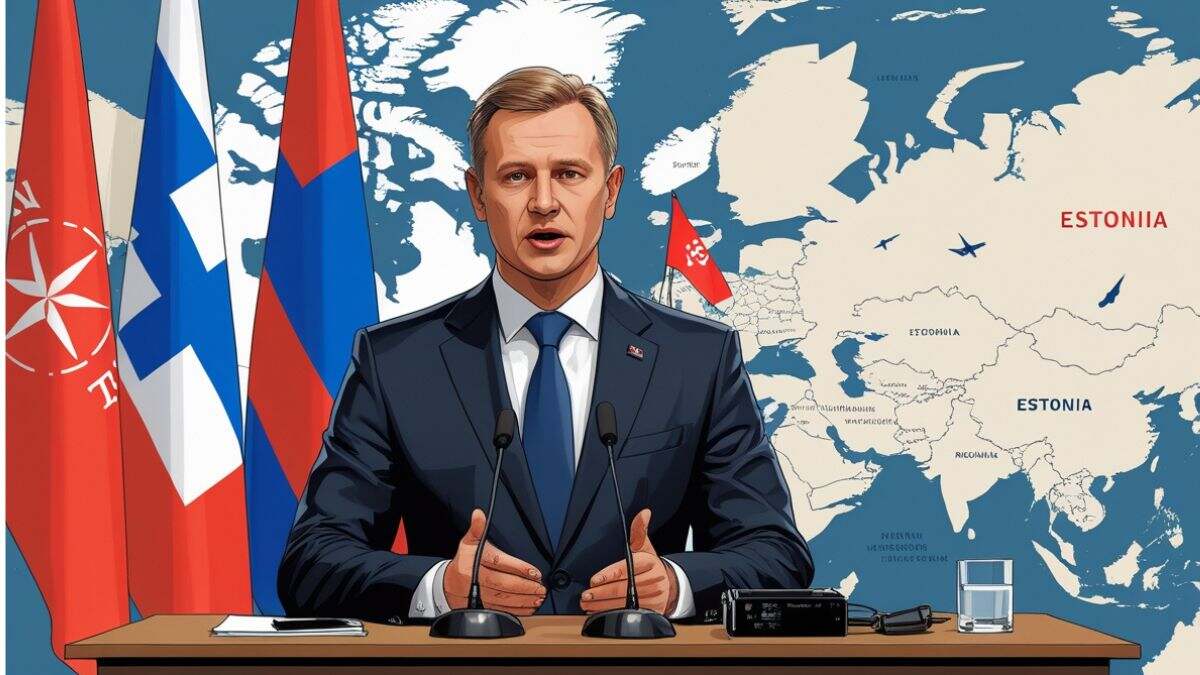Following talks with partners on Tuesday on Russia’s breach of airspace, Foreign Affairs Minister Margus Tsahkna said that NATO’s solidarity is evident and that Estonia is not alone.
Following a 12-minute invasion of its airspace by three armed Russian jets on September 19, Estonia asked its NATO partners for Article 4 discussions.
The allies demonstrated their strong support for Estonia at the Tuesday discussions. According to Tsahkna, the primary focus of NATO’s message is to highlight the alliance’s solidarity among its 32 members.
That has not been possible for him. It is quite evident that unity supports these conversations since the NATO Council met at our request under Article 4. Furthermore, Eastern Sentry’s strengthening is a crucial indicator. The minister told ERR, “I think this was a sufficient message and NATO’s statement was quite powerful since it brings in more capabilities.”
Earlier this month, over a dozen Russian drones violated Polish airspace, prompting the deployment of Eastern Sentry on September 12. There have been smaller-scale events in Latvia, Lithuania, and Romania.
According to Tsahkna, NATO aspires to bolster the whole eastern flank and put more emphasis on deterrent tactics, air defense, and NATO presence.
“From a political standpoint, this is a really significant statement. In addition to adding active drills in our area, military preparation will now proceed to ascertain precisely what will happen. In addition to strengthening our capabilities and discouraging Russia, the foreign minister said, “All of this demonstrates that NATO is unified, that we can take quick military action regarding NATO air defense operations, and that we are fortifying the whole eastern flank.”
“We are not alone.”
The raid on Friday garnered international attention. According to Tsahkna, Estonia benefits greatly from the spotlight as it shows how hostile Russia is in reality.
“Everyone in the world is aware that Russia is an aggressive nation and that Estonia is not the only one. We need to talk about the larger picture, which includes what Russia is doing in Europe and what it has done in Poland and Romania. Denying Russia’s aggression and the reality that it is operating against Ukraine as well as the larger European security architecture would be the worst thing, he added.
Following the airspace violation, Estonia summoned a meeting of the UN Security Council, where the minister addressed on Monday.
“It is possible to reassure the Estonian people. We are not alone now, which is precisely what we intended when we made the decision in the early 1990s that we would never be left alone again,” Tsahkna said.
During this week’s UN General Assembly, Estonia has also drawn support and attention from nations with whom it has weak diplomatic relations.
“They say, ‘We are with you,’ because almost every nation in the world is concerned about the violation of territorial integrity, which is the change of boundaries via armed means. Following yesterday’s Security Council meeting, Estonia is undoubtedly in the news,” Tsahkna said, adding that it also offers a better chance to draw attention to the situation in Ukraine.
At a news conference after the discussions, NATO Secretary General Mark Rutte said that such action would never be accepted, regardless of whether the Russian fighter planes’ invasion of Estonian airspace was deliberate or not.
“We will handle each instance of Russia provocating and violating boundaries independently and respond appropriately,” he said.

